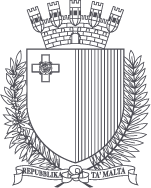The European Union Coordination Department (EUCD) within the Ministry responsible for European Affairs is responsible for the Government’s overall internal coordination on all European Union (EU) related matters with a view to ensure Malta’s effective participation in EU structures and policy making, through a timely, consistent and coherent approach. The Department is also responsible for the coordinating the smooth transposition and implementation of EU legislation.
Main Competencies
The EUCD is part of the Government’s administrative structure and serves as a co-ordination body on EU policies. The Department seeks to ensure that all stakeholders, i.e. both lead and line Ministries and Government bodies, are well-informed and consulted so that the necessary decisions and actions about any EU related matter are taken in a timely manner. This allows the Government’s representatives to effectively participate in all meetings at EU level. Also, while the Department is not directly responsible for the introduction of new laws, it is tasked with the coordination for the proper transposition and implementation of the EU acquis.
The EU Coordination Department is responsible for the overall coordination of Malta’s positions for discussions within the various EU institutions and entities, as well as with other Member States. It is responsible for ensuring that appropriate instructions and briefing material is received by the Permanent Representation of Malta to the EU, as well as those participating in EU Ministerial Council meetings, committees, working parties and working groups. The EU Coordination Department is also responsible for ensuring effective participation in all priority Council working parties and Commission working groups.
The EU Coordination Department coordinates the preparatory work for the Inter-Ministerial Committee for EU Affairs which includes the coordination of the drawing up of internal documents and consolidated position papers required for decision-making at the national level. It ensures the flow of information between the Permanent Representation and the respective lead and line ministries with respect to different policy areas. The EU Coordination Department has also a trouble-shooting role especially in the area of arbitration on questions of inter-departmental overlap.
The EU Coordination Department is also responsible for monitoring the implementation of the adopted acquis in line with the agreed timeframes, both in terms of legal adoption and implementation.
Furthermore, the EU Coordination Department is responsible to coordinate external visits (such as, from EU institutions and consultative bodies) and the preparation of the necessary briefing material for the respective meetings.
To carry out its duties, the EU Coordination Department is currently made up of five units namely: COREPER I Unit, COREPER II Unit, Legal Unit, European Parliament Unit & Inter-Ministerial Coordination Unit, and the Administration Unit.
Vision: Membership with purpose: Making a success of Malta’s EU Membership.
Mission: Ensuring Malta’s effective participation in EU structures and policy making and coordinating the smooth transposition and implementation of EU legislation.
Values: We believe in upholding the highest standards of integrity in all of our actions, while valuing our people, encourage their development and reward their performance.






